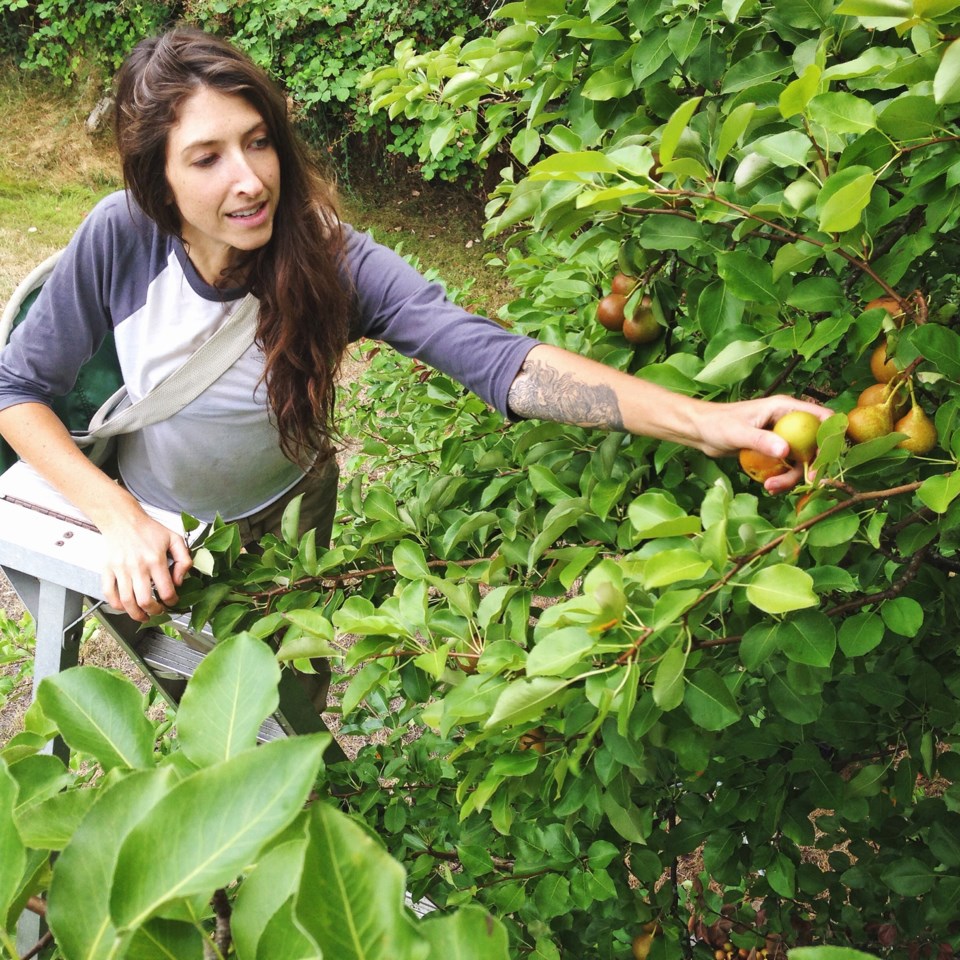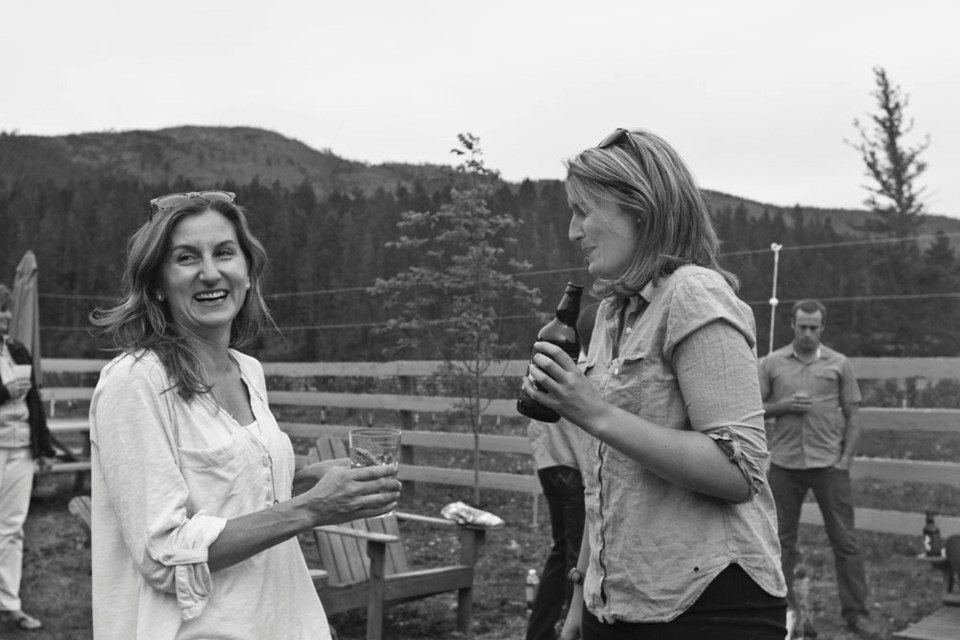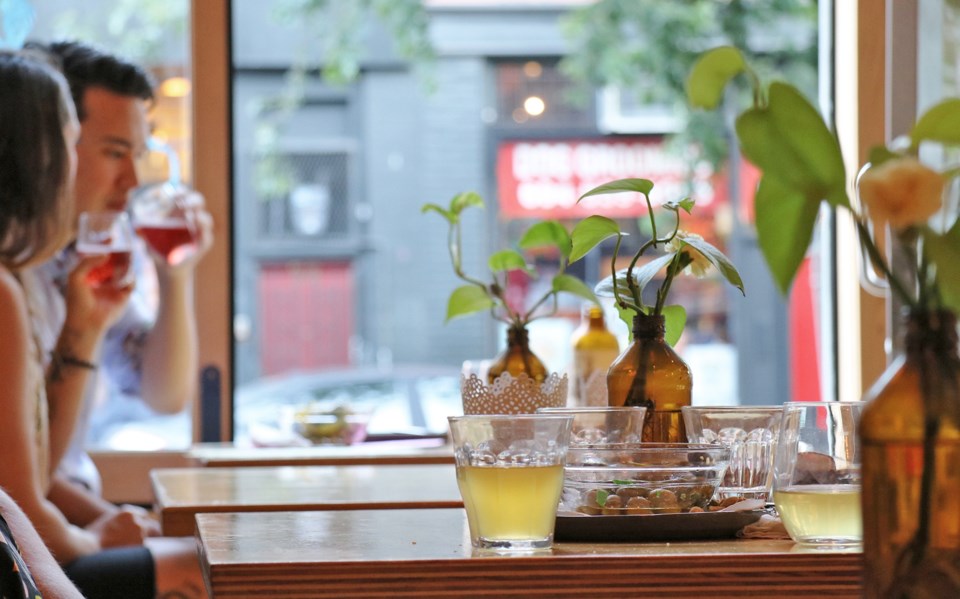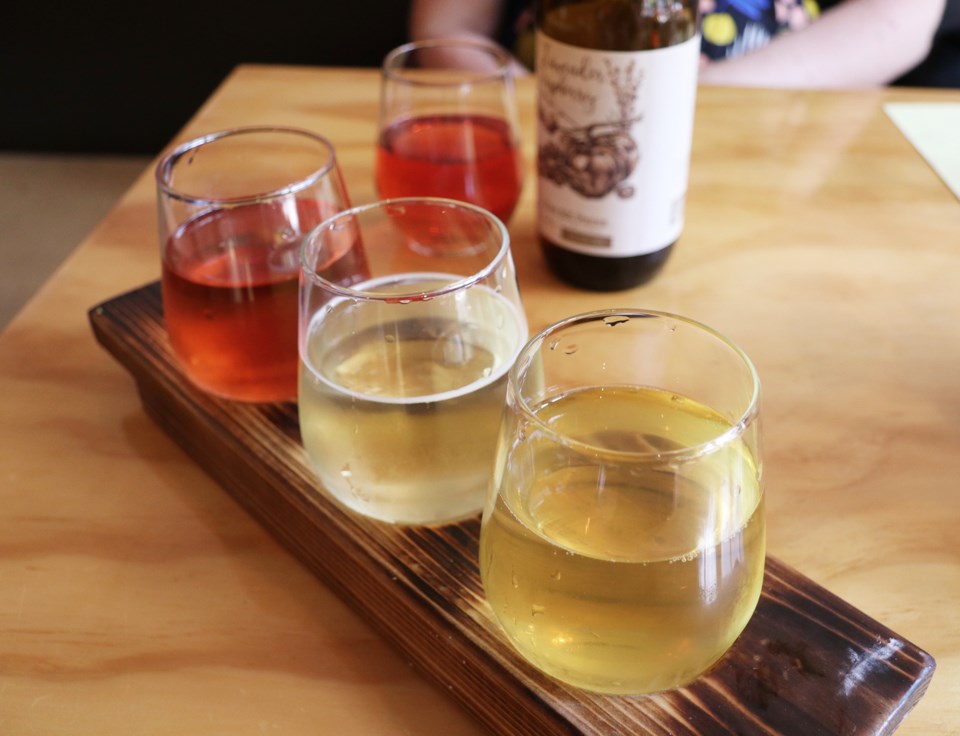Not many business owners count tree-climbing among their essential skills. But when you want to produce cider the traditional way, you have to get hands on – and for Katie Selbee and Matthew Vasilev, that means scaling the century-old fruit trees of Pender Island to pick the best apples.
The duo officially opened Twin Island Cider (twinislandcider.com) in May, after teaming up with landowners on the Gulf Island who wanted to see the soil put to good use. But the couple has been picking from old trees on the island for more than a year, as well as planting and grafting with the aim of building up their own 1,300-tree orchard.
Although they get a lot of help from family, friends and neighbours – including offers of unused apples from other properties – they still spend a lot of time amid the branches.
“That’s the labour involved with being hyper-local. We have the dream to really stick to these old-growth trees that are really difficult to pick because they’re 20-30 feet tall,” says Selbee, who estimates that in their company’s short lifespan, they’ve harvested around 35,000 pounds (that’s almost 16 tonnes) of apples between orchards on Pender and neighbouring Mayne Island.

Twin Island is one of the latest producers to enter the cider market in BC as the drink enjoys a renaissance across North America.
It’s one of the more labour-intensive cider operations out there – but the results are worth it, its owners believe, to keep their operation organic, authentic and as local as possible.
The flavour of the heirloom apples from these trees planted by the first European settlers – varieties with mysterious, evocative names like King of Tompkins County, Gravenstein and Grimes Golden – are developed further through wild fermentation, using the yeast in the air and on the skins, to give Twin Island cider a complex, tart and funky profile that’s become distinct to the region.
“In keeping to a Pacific Northwest style, it’s sharp but there are some incredible flavours, very aromatic,” Vasilev says.
Yet despite the dizzying potential for flavour and scope for growth, the cider market hasn’t surged in the way it did for Okanagan wine and, more recently, craft beer.
Many in the industry put that down to an issue of education. True cider is radically different from the sweet, additive-laden cooler-style drink favoured by teens in parks.
“In BC there are a lot of sweet, artificial alcopops that a lot of people think is cider,” says Kate Garthwaite, who opened Left Field Cider Company (leftfieldcider.com) north of Merritt with her sister Theresa Pedersen six years ago.
“So, just educating them that there is craft cider that’s full juice, that’s not using artificial flavours and concentrates, just pressing juice and how that’s different, and getting people to just try it. That was challenging at the start.”

Garthwaite aims to increase education efforts as vice-president of the recently established BC Farm Crafted Cider Association (bcfarmcraftedcider.com), which represents 20 cideries across the province.
Another issue is the relative remoteness of cider producers. Most operate out of farms, which means there isn’t the same opportunity for a high-traffic tasting room as there is with the many breweries bubbling up in BC’s cities.
But, similar to what happened with the boom in beer, there are positive signs coming from the south.
“In Portland, Seattle, there are a bunch of cideries and cider bars,” Vasilev says. “…There’s a presence of cider in the big American cities and that’s a great focal point for cider and a great way to bring cider makers from all over the states and provinces.”
What you might not know is that Vancouver already has its own dedicated cider bar – and it’s already been open for a year.
The Orchard & the Sea (orchardandthesea.ca), which operates on weekend evenings out of The Birds & The Beets space at 55 Powell St., boasts a big list of bottled cider from across BC and the US, with several draught options.
The restaurant is run by the people behind Txotx Imports (txotx.ca) – Shawn and Kelly Pisio, and chef Michael Broadbent – who originally focused on importing produce from Spain’s Basque country, including the area’s compellingly complex sidra.
Broadbent’s very affordable food menu, heavily inspired by his time in the renowned restaurant scene of San Sebastian, is more than reason enough to visit. You’ll be hard pressed to find a more authentic gazpacho this side of the Atlantic, while cured or preserved sardines, anchovies and tuna are used to salt-popping, lip-smacking effect in rustic shared plates such as pan con tomate.

The ciders aren’t exactly slouching, either. They offer a great foil for the food, with acidity and carbonation providing cutting power and latent sweetness offering both contrast and complement.
The Orchard & The Sea began to bring in more bottles from BC as the scene developed and today, the cider menu is full of local options. It provides a unique opportunity to sample a large range of ciders side by side to get a feel for the variety of profiles that the drink offers.
They range from the semi-dry blends of Okanagan and West Coast apples to the rosé of red-fleshed varietals, and more experimental infusions with other fruits and spices (try the lavender-raspberry by Vernon’s BX Press (thebxpress.com) ).
“People make the effort to find us, they come in the door and the first thing they say is, ‘I don’t like sweet cider,’” Pisio says. “And I say, ‘Good, you’re in the right place, we don’t have anything like that.’ Overcoming that and surprising people has been the most fun part,” he adds.
With more fruit coming online from new orchards in the coming years, things are only looking up for local cider.
“[In BC] We grow a lot of apples but they’re dessert apples, grocery store apples. So everybody we know is aggressively grafting and planting cider fruit, but that takes a little while – three to five years – for those to produce,” Pisio says.
“So that means it’s going to get nothing but better. We’re seeing the tip of it now. Once all those trees really start producing, the quality is going to jump to the next level.”



